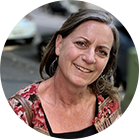Join AIDR and the Collaborating4Inclusion project team as we invite expert speakers to explore how government, emergency services, people with disability and the services that support them are working together to put person-centered and capability-focused approaches to DIDRR into action.
Webinar four: DIDRR Framework and Toolkit for Collaborative Action
In 2023 the Australian Institute for Disaster Resilience (AIDR) in partnership with the Collaborating4Inclusion Research team at the University of Sydney hosted the Leave Nobody Behind Webinar Series. Each of the three webinars took a deep dive into Disability Inclusive Disaster Risk Reduction (DIDRR) from different perspectives; emergency services and government, people with disability, and the community services that support people with disability. This was followed by a National DIDRR forum that brought all three perspectives together.
The fourth and final webinar in the series will launch the DIDRR Framework and Toolkit for Collaborative Action which synthesises a decade of research on collaborating for DIDRR development in Australia.
The Framework and Toolkit aim to take disability out of the too-hard basket, by demonstrating and enabling actions that different stakeholders across the disability, community, emergency, and government sectors can take to develop cross-sector DIDRR polices and practice.
Guest speaker
 Michelle Villeneuve, Associate Professor & Deputy Director, Centre for Disability Research and Policy, The University of Sydney
Michelle Villeneuve, Associate Professor & Deputy Director, Centre for Disability Research and Policy, The University of Sydney
Associate Professor Michelle Villeneuve is the Deputy Director at The University of Sydney Impact Centre for Disability Research and Policy. Michelle leads an international program of research that addresses inequities that people with disability experience in everyday living and situations of natural hazard disaster and other emergencies. Michelle is leading the development of Disability Inclusive Disaster Risk Reduction (DIDRR) in Australia - bringing together health, community, disability and emergency services sectors to establish cross-sector DIDRR policy and practice.
Michelle has over 20 years of experience working in regions of conflict and natural hazard disaster to develop community-led services and re-build opportunities for people with disability, including those acquired by human conflict and natural disaster.
Her partnership research keeps people with disability and their support needs at the centre of development and change.
Webinar host
 Margaret Moreton, Executive Director, Australian Institute of Disaster Resilience
Margaret Moreton, Executive Director, Australian Institute of Disaster Resilience
Margaret is the Executive Director for AIDR and brings to this role significant experience working in the government, non-government, business and the philanthropy sectors. Her career began in federal government, before she undertook community-based research at the Australian National University that identified key factors that contribute to disaster recovery and resilience. Margaret has worked in paid and volunteer roles and has operated her own private consulting business in disaster risk reduction and resilience. Following the 2019-2020 bushfires, she spent time working in philanthropy. Margaret has developed a strong reputation as a disaster resilience specialist, working to build community resilience in partnership with a broad range of stakeholders and led by communities themselves.
Together with her team at AIDR, Margaret is focussed on developing and sharing knowledge, resources, and experience across a range of sectors, to lead or contribute to efforts that enhance community and systemic resilience to natural hazards, across Australia. She has a particular passion for amplifying the voices of diverse groups who have lived experience and significant knowledge and expertise, and have previously been overlooked or not included ‘at the table’. She feels a sense of urgency about disaster risk reduction work, and strongly advocates for partnership approaches, on the basis that urgency, relationship and trust are essential elements of bringing about systemic change.
About Collaborating4Inclusion
The Collaborating4Inclusion research team works in partnership with government and emergency services, people with disability, and the services that support them to co-produce collaborative action so that nobody is left behind when disasters strike.
The Leave Nobody Behind project has been working across New South Wales and Nationally to develop research, policy, and practice that builds cross-sector community capacity to ensure that nobody is left behind when disasters strike. The final tranche in the project will be the development of a national framework for cross-sector collaborative action on DIDRR, supported and enabled by co-produced tools that everyone can use.


